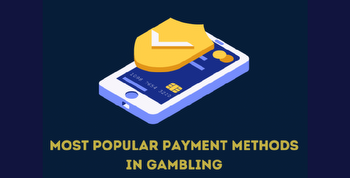The ins and outs of online casino payments in the UK
The online payments industry is growing and there are more providers than ever before. This article explains the ins and outs of online casino payment providers in the UK. It also explains how to choose the best provider for what you need. It is recommended to check if the provider is compatible with your bank account.
As of April 2020, UK-licensed gambling operators can no longer accept credit cards for gambling. Traditional payment processors such as bank transfer and e-wallets such Apple Pay, Google Pay and PayPal are available. Software-focused processors like ecoPayz, Trustly, Astropay, Neteller, Boku, Skrill and paysafecard are also available in the UK.
The process of making a payment on an online casino is pretty straightforward. Users register for an account and fill out all of the requisite personal and financial information. They connect their payment processor and follow the steps required to make a deposit. Some online casinos will request that the same processor is used for withdrawals.
There are some differences between online casinos that are targeting gamblers in different countries. Some payment processors are not available at some casinos. You need to do some research and searching to find casinos with a particular range of niche processors.
Cryptocurrencies are becoming more popular as investment instruments and payment modes. Online casinos are offering crypto-specific payment processors. The largest cryptocurrencies are the most widely accepted. Crypto wallets are typically approved payment processor. Some casinos accept only crypto. Other casinos also accept other payment methods. There are some casinos in the UK that accept all crypto payments. They are:
There are always new stories about online scams and hacks. It's impossible to be completely safe online, but there are ways to safeguard your sensitive personal and financial information. Online safety best practices include choosing difficult passwords and regularly changing them, opting for two-factor authentication processes and being vigilant for phishing attempts.































